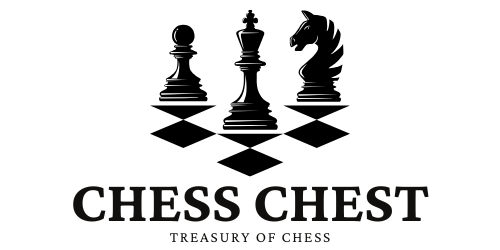In the world of online chess, social features play a significant role in player development. Many chess platforms now offer tools for connecting with other players, joining clubs, participating in forums, and even analyzing games with peers. These features help players improve by creating a supportive and interactive learning environment. In this article, we’ll dive into the impact of social features on chess performance and explore how players can use them to enhance their skills.
1. Real-Time Game Analysis and Peer Feedback
One of the most valuable social features is the ability to analyze games with other players. Many platforms, such as Chess.com and Lichess, allow players to review games with friends or club members, discuss strategies, and identify mistakes.
- How It Helps: Reviewing games with peers provides insights that a player might miss when analyzing alone. Friends or mentors can point out tactical opportunities, alternative moves, or areas for improvement, helping players learn from different perspectives.
- Benefit: Analyzing games with others offers a collaborative way to refine skills, understand mistakes, and learn new strategies, accelerating improvement.
2. Joining Chess Clubs and Online Communities
Chess clubs and communities are a hub for players who want to connect, share knowledge, and challenge each other. Online chess platforms provide club features where members can join tournaments, share game insights, and discuss openings, tactics, and strategies.
- How It Helps: Being part of a chess club or community creates a sense of camaraderie, which motivates players to stay engaged. Clubs often host internal tournaments, challenges, and study sessions that encourage players to push their limits.
- Benefit: Being in a community adds accountability, motivation, and friendly competition, helping players stay committed to regular practice and continued improvement.
3. Access to Coaching and Mentorship
Many chess platforms offer social features that allow players to connect with experienced coaches or mentors. Some platforms include live chat options with titled players, while others facilitate coaching sessions where players can receive personalized feedback.
- How It Helps: Guidance from a coach or mentor provides tailored advice and strategies that are specifically suited to a player’s strengths and weaknesses. The personal interaction also makes learning feel more dynamic and engaging.
- Benefit: Coaching can accelerate progress by giving players clear, structured paths for improvement, and mentors offer encouragement and insights that boost confidence.
4. Engaging in Forum Discussions and Q&A Sessions
Online forums and Q&A sessions provide a space for players to ask questions, discuss chess theory, and share experiences. Platforms like Chess.com, Lichess, and Reddit host active chess forums where players discuss topics ranging from specific openings to general game strategy.
- How It Helps: Engaging in discussions with other chess enthusiasts exposes players to diverse perspectives, theories, and techniques. Players can clarify doubts, explore new ideas, and learn from the experiences of others.
- Benefit: Forum participation fosters a deeper understanding of chess concepts, while exposure to varied viewpoints encourages creative thinking and adaptability on the board.
5. Participating in Tournaments and Friendly Matches
Online platforms often host social tournaments and friendly matches, where players can test their skills in a supportive setting. Tournaments provide structured competition, while friendly matches allow players to practice in a low-stakes environment.
- How It Helps: Tournaments and friendly matches simulate competitive play, helping players develop strategies under pressure. Friendly matches are also a chance to try new openings, experiment with tactics, and receive feedback afterward.
- Benefit: Regular competition builds resilience, sharpens skills, and provides a way to track improvement over time, making it a crucial part of chess training.
Summary
Social features on chess platforms provide players with a unique advantage by fostering an environment of collaboration, learning, and competition. Analyzing games with peers, joining chess clubs, receiving coaching, engaging in forum discussions, and participating in tournaments all contribute to a well-rounded training experience. By leveraging these social features, players can stay motivated, gain diverse perspectives, and enhance their skills in a supportive community. The connections made through social features ultimately enrich the chess journey, helping players grow and improve more effectively.




